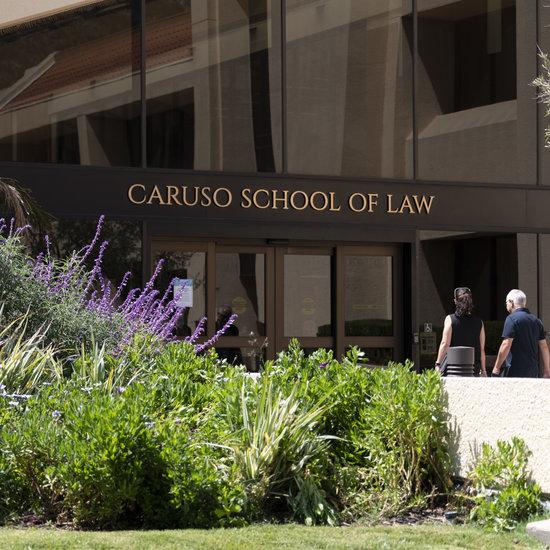Pepperdine Sudreau Global Justice Institute Leadership Attend Training Conference in Rwanda to Discuss Plea-Bargaining Pilot Program and Program Expansion

From Monday, October 9, to Thursday, October 12, 2023, members of Pepperdine Caruso School of Law’s Sudreau Global Justice Institute, the Straus Institute for Dispute Resolution, and the Rwandan Chief Justice of the Supreme Court, as well as other leaders from the Rwandan judiciary and criminal justice stakeholders, held a training conference to explore alternative dispute resolution through both criminal plea bargaining and civil mediation and negotiation.
The first two days of the conference served as a forum for attendees to discuss key learnings from the plea-bargaining pilot program that launched the year prior—a project spearheaded by both the Sudreau Global Justice Institute and the Rwanda Justice Sector to strengthen and build capacity within the Rwandan criminal justice system, as well as to promote justice reform projects that will enhance the administration of justice in Rwanda. Featuring practical training and participation-based sessions, the Rwanda Training Conference provided a platform for exchanging insights and perspectives for using the plea-bargaining process during the 2023 judicial year, with an emphasis on ensuring the robustness and efficacy of the process while establishing its alignment with Rwanda’s criminal justice policy.
In October 2022, as a first step in the rollout of the pilot program, Pepperdine partnered with the Rwandan Judiciary to host a plea-bargaining symposium and prison project. Since its launch, around 4,000 plea agreements have been reached and the chief justice of Rwanda plans to expand the program nationwide, which will help reduce case backlog and overcrowding in prisons. As plea bargaining sessions continue to expand in the region, more criminal justice personnel will be given the opportunity to engage in the plea bargaining process, establishing uniformity in practices, methodology, and results that will be key to ensuring equitable outcomes.
“Our vision at the Sudreau Global Justice Institute is to make access to justice a reality for all people, everywhere. We are thankful to have a network of experts who can support the Rwandan Judiciary in accomplishing their goal of decongesting prisons, reducing pre-trial detention rates, and easing systemic case backlog,” shares Seth Bamburg (JD '17), associate director for the Sudreau Global Justice Institute. Michael D. DiReda (JD '93), a district court judge in the Second District of Utah is one of those experts, using his criminal justice expertise to conduct training sessions at the conference. DiReda notes, “It is an incredible honor to partner with our Rwandan colleagues to develop better strategies to provide greater access to justice to some of the world’s most vulnerable people.” Bamburg adds, “We look forward to the many stories of justice to come.”
Rwanda’s goals regarding its citizens’ access to justice are not limited to the criminal justice realm, but also extend to alternative dispute resolution in the civil realm through mediation and negotiation. The following two days of the conference featured Sukhsimranjit Singh, director of Pepperdine’s Straus Institute, as he led an advanced mediation and negotiation training for Rwanda’s civil justice leaders and stakeholders. Assisted by professor Cassandra Franklin, Singh facilitated discussions and distribution of best practices in the field of civil alternative dispute resolution, particularly for those in practice areas involving family or commercial matters. Civil mediation is a rapidly growing field of practice in Rwanda, which also helps alleviate court case backlog, and Singh’s sessions helped lay a practical foundation upon which this burgeoning tool can flourish.
Both immediately before and after the training conference in Rwanda, members of Pepperdine’s Sudreau Global Justice Institute traveled across the African continent to meet with several political and government representatives who had expressed interest in implementing access-to-justice measures such as plea bargaining and are interested in partnering with the institute to help them accomplish those goals. These visits included conversations with leaders from Zimbabwe, Tanzania, and Ethiopia, as well as discussions of program expansion with current partners in Ghana and Nigeria. Justice stakeholders in Colombia also extended an invitation to Sudreau Global Justice Institute leadership to visit in spring 2024 to discuss potential partnership opportunities, which would be the institute’s first partnership outside the continent of Africa.
“The population of the countries we currently have partnerships with (Uganda, Rwanda, Ghana, and Nigeria) and those who have recently expressed interest in partnerships (Ethiopia, Tanzania, and Zimbabwe) is more than 500 million people, which is close to 40 percent of the population of the entire continent. It is very humbling to think that the work of the Sudreau Global Justice Institute could potentially serve the justice systems of hundreds of millions of people across the world,” says Bamburg. “While much of our expansion is dependent on resources, we are excited to explore these invitations to expand access to justice.”